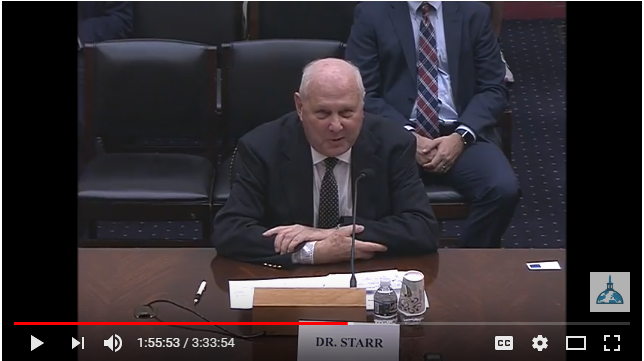CACI, IREX, and USAGM Panel Discussion Invitation: Taking Stock
Taking Stock Invitation: One Year After Uzbekistan Pledges Reforms
The Central Asia-Caucasus Institute, alongside of the U.S. Agency for Global Media, and IREX are hosting a panel discussion to mark the first anniversary of the new era of cooperation between Washington and Tashkent. One year after Uzbek President Mirziyoyev’s historic May 2018 visit to the United States, a panel of experts will discuss what changes are underway in the strategic Central Asia nation. Topics of discussion include U.S.-Uzbek cooperation, new international activities, and reformation in the economic and media sectors of the country.
Featuring:
His Excellency Javlon Vakhabov, Uzbek Ambassador to the United States
Lisa Curtis, Deputy Assistant to the President and National Security Council Senior Director for South and Central Asia
Dr. Frederick Starr, Chairman, Central Asia -Caucasus Institute and Silk Road Studies Program
Navbahor Imamova, Journalist, VOA Uzbek Service
Moderator: Alicia Phillips Mandaville IREX Vice President for Global Programs
Where: IREX, Suite 600, 1275 K St. NW, Washington, DC
When: Thursday, May 30, 2019 from 2:00 - 3:30 pm,
RSVP: Click HERE to register
CACI Forum and Full Recording: The Xinjiang Crisis and the Rest of Central Asia: Impacts and Responses
The Xinjiang Crisis and the Rest of Central Asia: Impacts and Responses
The Uyghurs of Xinjiang constitute one of the oldest Turkic peoples and the first to be urbanized and to develop a written language and rich intellectual life. As such they are, in a historic and cultural sense, part of Central Asia. The forum discussed how the ongoing crisis in Xinjiang affected Uyghurs, the Central Asian countries, and how Afghanistan, Kazakhstan, Kyrgyzstan, Tajikistan, Turkmenistan and Uzbekistan responded?
Speakers:
Sean R. Roberts, Associate Professor, George Washington University
James Clad, Director, Asian Security Program, American Foreign Policy Council
Ilshat Hassan, President, Uyghur American Association
Moderator: S. Frederick Starr, Chairman, Central Asia-Caucasus Institute at AFPC
Where: Middle East Institute: 1319 18th Street NW, 20036
When: Tuesday, March 26, 2019 from 12:00 - 2:00 pm,
Scroll Down for the Full Recording
CACI Forum - Reform in Uzbekistan: A Turning Point for Central Asia and Beyond
Reform in Uzbekistan: A Turning Point for Central Asia and Beyond
Scroll down for the video recording
Speakers:
S. Frederick Starr, Chairman, Central Asia-Caucasus Institute; co-editor, Uzbekistan’s New Face
H.E. Mr. Sherzod Shermatov, Minister of Public Education, Uzbekistan
Mr. Eldor Aripov, Director, Center for International Relations Studies, Tashkent
Moderator: Svante E. Cornell, Director, Central Asia-Caucasus Institute; co-editor, Uzbekistan’s New Face
Where: The National Press Club 529, 14th Street NW, 13th Floor, Washington, DC 20045
When: Thursday, Octobeer 4, 2018 from 3:00 - 4:45 pm
S. Frederick Starr Testifies at House Subcommittee Hearing on "Current Developments in Central Asia"
CACI Forum: Toward "Enlightened Islam"? Religion and the Secular State in Uzbekistan
Toward "Enlightened Islam"? Religion and the Secular State in Uzbekistan
Uzbekistan has remained staunchly secular and taken a firm stand against extremist movements since independence. In recent years, however, Uzbekistan’s policies have shifted from a defensive to a more proactive approach. The recent surge of reforms has affected the religious area as well. Uzbekistan has taken major steps toward the promotion of what President Shavkat Mirziyoyev terms “Enlightened Islam” at home and on the world stage.
This Forum was part of CACI’s ongoing research on the relationship between politics and religion in Central Asia and the Caucasus, and coincided with the release of the Silk Road Paper “Religion and the Secular State in Uzbekistan”, by Svante E. Cornell and Jacob Zenn.
Speakers: Svante E. Cornell, Director, Central Asia-Caucasus Institute at the American Foreign Policy Council
Moderator: Frederick Starr, Chairman, Central Asia-Caucasus Institute
Where: Middle East Institute: 1319 18th Street NW, 20036
When: Thursday, June 7, 2018 from 4:00 - 5:30 pm
Full Recording of the Forum Below:






